
Academic and Research Cooperation (Model)
Pressing Home its Advantage: The Key to Success of National Pingtung University of Science and Technology
Pressing Home its Advantage: The Key to Success of National Pingtung University of Science and Technology
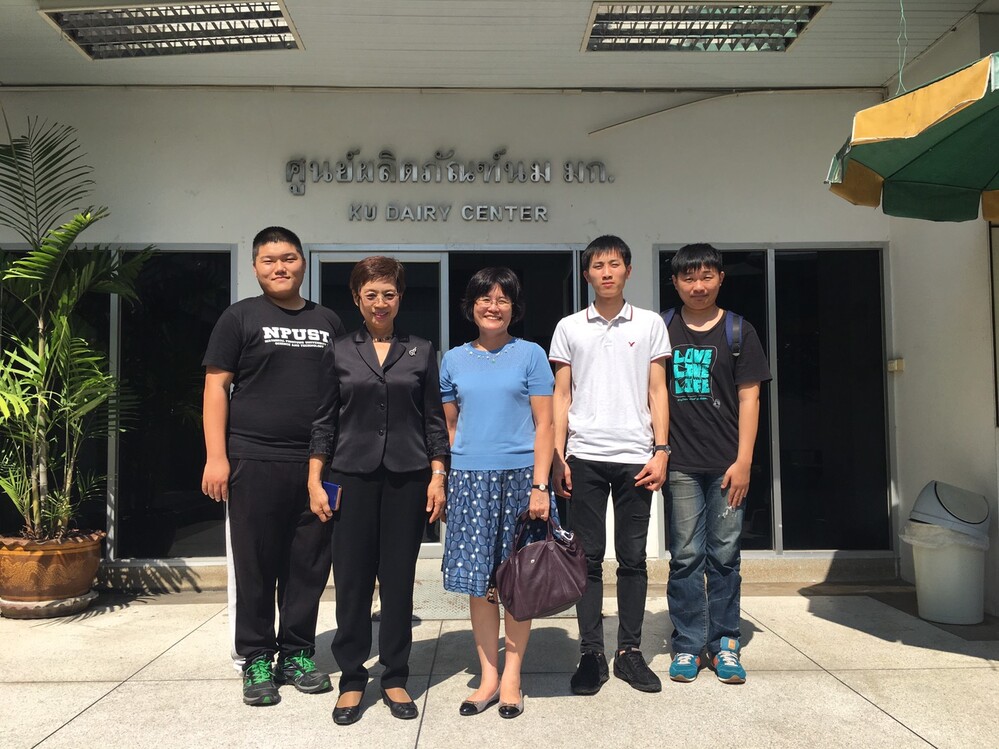
We selected National Pingtung University of Science and Technology (NPUST) for its fruitful educational exchange with Kasetsart University, which is a time-honored and the largest agriculture university in Thailand. The bilateral agreement between the two universities has entered its 20th year. In addition to maintaining active and frequent mutual exchange, they’ve regularly hosted the Taiwan-Thailand Symposium for 10 years by turns. Capitalizing on their reciprocal exchange, the two universities not only focus on their respective areas of agricultural specialization, but also improve each other’s strengths, which counts as an exemplar of close international cooperation in higher education.
Taipei is as sultry as a boiler this summer, making us worry whether it would be hot as heck in Pingtung when we took to the road towards NPUST for interview. No sooner did we arrived at the university and see the meadow and dense woods on the campus, than we felt that the temperature dipped. It was not until we exited the car and walked the long corridor of a building that we understood the following common expression: “in southern Taiwan, you’ll feel pleasantly cool in shade.” The apparent temperature proved this assertion.
NPUST is exactly a university with such a sprawling, cozy campus in southern Taiwan.
A Stable Cooperation Comes from Wholehearted Mutual Exchange
Right before our interview, a delegation led by the president of Chulalongkorn University paid NPUST a visit. Chulalongkorn University is NPUST’s partner university and the top university in Thailand and Southeast Asia. It ranks 245th in the 2018 QS World University Rankings. The delegation was scheduled to leave Taiwan after visiting National Taiwan University, National Taiwan University of Science and Technology, National Tsing Hua University and National Cheng Kung University. It was through the arrangement of the Taipei Economic and Cultural Office in Thailand that the delegation spent one more day visiting NPUST.
“After visiting the Graduate Institute of Animal Vaccine Technology and Veterinary Medical Teaching Hospital, the president of Chulalongkorn University was particularly impressed by our agriculture education and transdisciplinary integration. The delegation found NPUST radically different from other technical and vocational colleges, and felt our sincerity from our warm hospitality. Therefore, they are positive about the closer cooperation between the two universities in the future,” so said Vincent Ru-Chu Shih, the Dean of International Affairs, NPUST. The mutual trust between partner universities should be built on the foundation of wholehearted exchange.
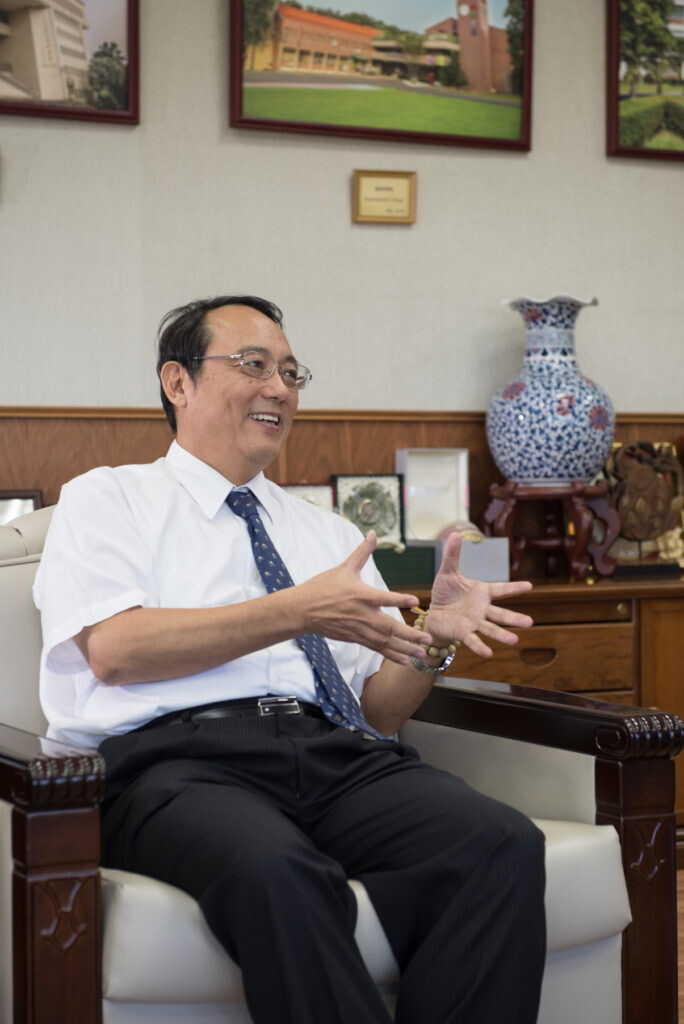
President Chang-Hsien Tai is very familiar with NPUST’s performance in agriculture as well as biological science and technology though he is a professor of vehicle engineering.
The NPUST’s hospitality with open arms may be considered as an inherent character of southern Taiwan. To root out the poppies in northern Thailand, the Royal Thai Government initiated a series of projects in 1960, aiming to transform the agrarian landscape by helping the farmers grow cash crops. They initially resorted to western experts but ended with no sign of improvement. In view of the diplomatic relations between Taiwan and Thailand, they turned to Taiwan for its expertise in tropical agriculture. They finally managed to transform the agricultural structure in that region with the help from Taiwan’s Veterans Affairs Council, therefore having great trust in Taiwan. It is why the agricultural cooperation between Taiwan and Thailand continues even though the two countries have severed their diplomatic relations. The Government of Thailand sends students to Taiwan every year, and NPUST has become a major destination for them to learn agricultural science.
“Our key to fostering their agriculture is to play the role of a tutor, which is distinct from the conventional practice of western countries,” so stated Chang-Hsien Tai, the president of NPUST. Today, some retired professors from NPUST still stay in Thailand and help local farmers grow crops, through which we can conjure up the firm friendship between Taiwan and Thailand.
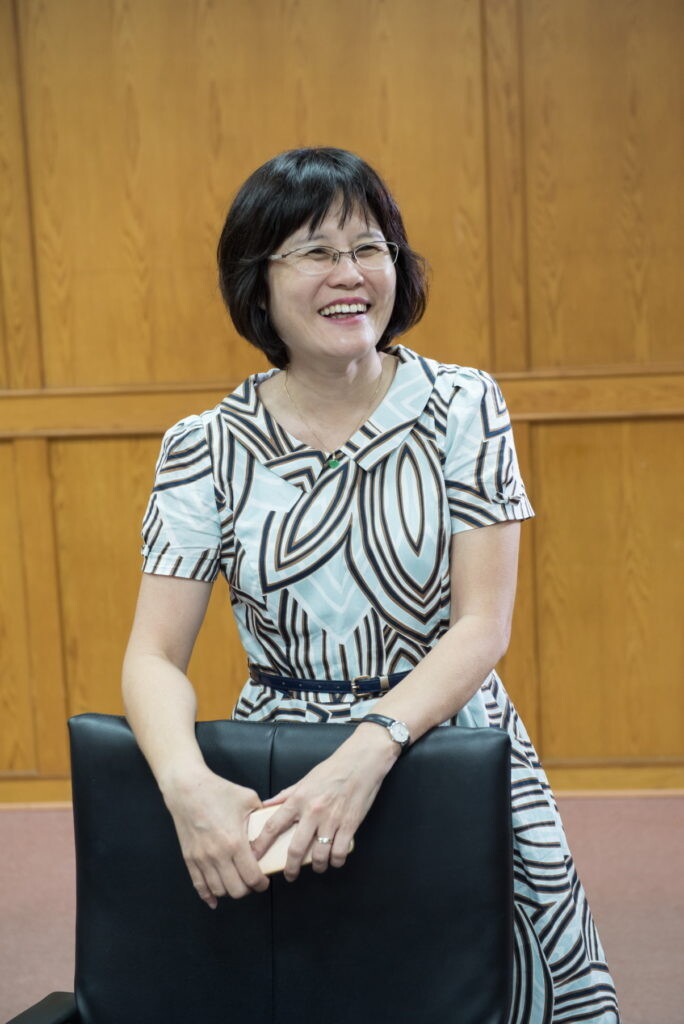
Shyang-Chwen She, the Chairperson of NPUST’s Department of Food Science
But then again, the firm friendship between Kasetsart University and NPUST began with the interaction of the faculties from both sides. The interaction started from academic seminars and reciprocal visits between faculties and then extended to the exchange internship for students in both universities, which finally resulted in the signature of a legal memorandum of cooperation by both parties. This is our set pattern for international exchange.
Although the exchange in food science marks the deepest and firmest aspect of cooperation between the two universities, Shyang-Chwen She, the Chairperson of NPUST’s Department of Food Science, always makes time to visit professors whom she is acquainted with or just met whenever she goes to Thailand and whichever city she stays, so as to cement their friendships with such considerate visit. The exchange between the two universities’ Departments of Veterinary Medicine that has just made significant progress in recent three years follows exactly this approach.
Gaining International Visibility with the Help from Animals
During her first visit to Kasetsart University, Yi-Lun Tsai, an associate professor of veterinary medicine, found herself in an unfavorable position because of the lapse in communication and the host’s greater advances in veterinary transfusion medicine. Instead of feeling frustrated, she went to University of California, Davis for advanced learning, devoting herself to building up the first Veterinary Transfusion Medicine Center in Asia. Opening in 2016, NPUST’s Veterinary Transfusion Medicine Center has outperformed its counterpart in Kasetsart University. Tsai’s achievement startled the latter, bringing NPUST’s veterinary medicine advantage over that of Kasetsart University. Previously, the exchange between the two universities in veterinary medicine featured NPUST’s students serving their internship in Thailand. Since 2017, the scales have tipped in favor of NPUST. When the first group of interns from Thailand arrived NPUST, what they dwelled upon with great relish include paying home visits for big animals with the veterinarians, closely observing surgical operations, and training working dogs.
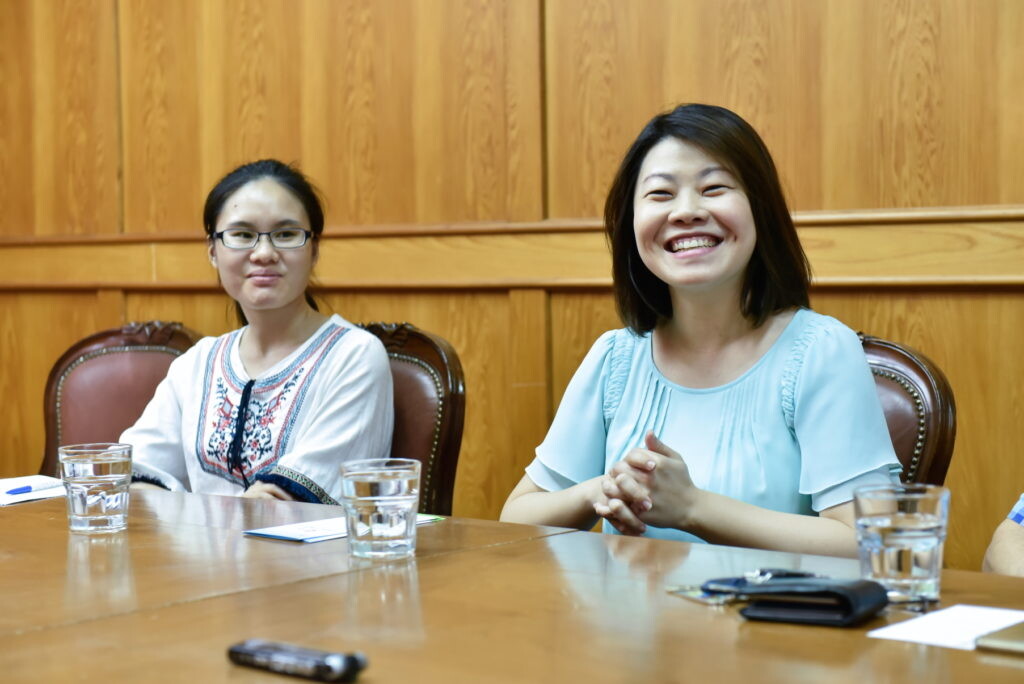
Drawing on the experience from foreign countries, Yi-Lun Tsai, an associate professor of the Department of Veterinary Medicine, NPUST (right), successfully established the first Veterinary Transfusion Medicine Center in Taiwan.
The working dog training center is a distinguishing feature of NPUST. When we were about to interview the dog trainer Dr. Wei-Lian Chi, he was fully occupied having an interview by the Asahi Shimbun for the invasion of fire ants in Japan. The Japanese competent authorities were at their wits’ end about the problem, and ergo called for Chi’s help across the sea. They also sent him dogs for necessary training. “It deserves high accolade that we are able to instruct Japanese in this regard,” Chi said, with a touch of pride.
People tend to recall search and rescue dogs when it comes to working dogs. Indeed, working dog training is not Taiwan’s strong suit. Having long engaged in natural conservation, Chi combines ecology with working dogs by training the dogs to detect the “tree cancer,” (i.e. brown root rot disease), vector mosquitos, fire ants, and even the cancers endemic among human beings. Since the combination of ecology and working dog training remains under development in Asia, NPUST has carved out a niche for itself in this field with its benchmark performance. The interns from Thailand tend to be amazed by NPUST’s strength in animal behavior research and pertinent training when they witnessed the training process.
Speaking of outperforming Kasetsart University in the field of veterinary medicine, Yi-Lin Tsai said with a smile that “reciprocity is the key to sustainable relationships. To foster substantial exchange and cooperation, our own competitive advantage is a necessary commodity.” Finding useful contacts, keeping its enthusiasm aflame, and pressing home its advantage are the decisive factors behind the high visibility of NPUST on the stage of international exchange.
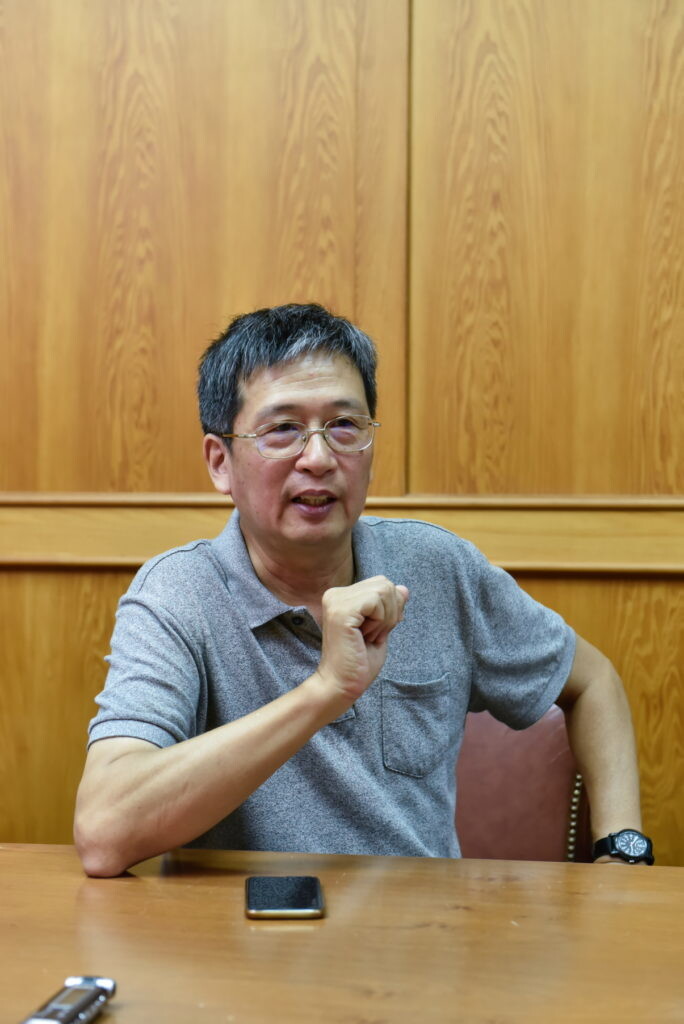
Dr. Wei-Lian Chi
Students Returning with Fruitful Results from the Internship Programs
Notwithstanding the international recognition of their abilities, the interns from NPUST in Thailand unanimously agreed that language skills have always been the Achilles heel of Taiwanese students. They hence determined to polish their foreign language skills.
Ting-Yu Hsu, a graduate student of the Department of Food Science, NPUST, was encouraged by his professor to join the “Overseas Internships Program” in his senior year for a four-week internship and academic visit in Thailand. In the laboratory, he ran rings round the local students in terms of flexibility and experiment performance. “Taiwanese students have rigorous training and outstanding ability in practical work,” Hsu said. However, language remains the most challenging task for him. After returning from Thailand, he not only put in time and effort to learn English and Thai, but also considered working overseas after graduation.
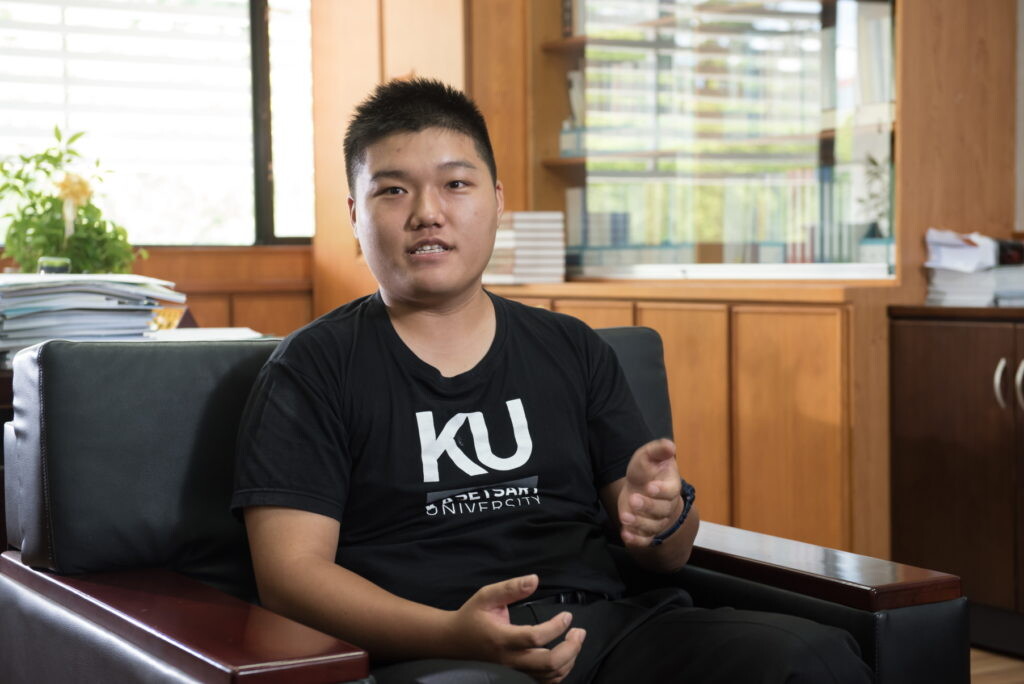
Ting-Yu Hsu is learning to examine the aerobic plate count of milk and packaging material at the division of quality control in the Dairy Center.
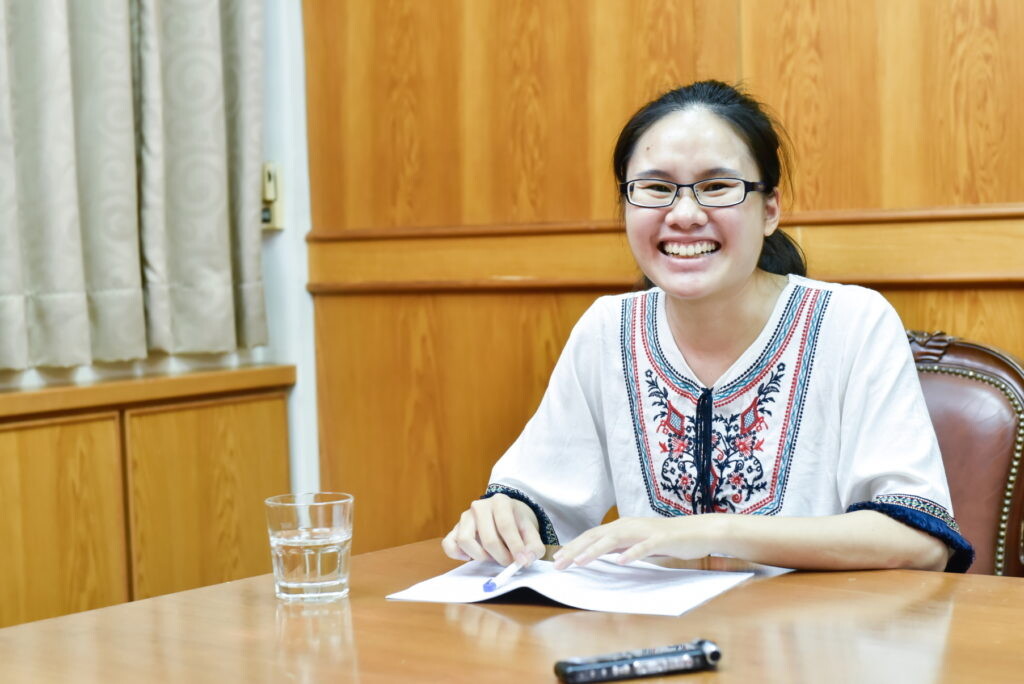
Rui-Chi Chen, a graduate student of the Department of Plant Industry, NPUST
Po-An Yue, a graduate student of the Department of Veterinary Medicine, NPUST, stated that veterinary medicine students in Taiwan seldom use English textbooks because English is not a necessary tool for them. Not until he served the internship in Thailand did he find the fact that his Thai counterparts are fluent speakers of both English and their mother tongue. In addition, Thailand has many different animal species that do not occur in Taiwan. Even the number of horses in Thailand is much larger than that in Taiwan. The animal species and the amount of animals he saw during the internship satisfied his aspiration for knowledge, as if returning from a rewarding journey. “Human medicine focuses simply on one planet, while veterinary medicine contains myriads of planets that we can never exhaust our explorations,” Po-An Yue claimed.
Rui-Chi Chen, a graduate student of the Department of Plant Industry, NPUST, chose to serve her internship in a remote area of northeastern Thailand. Her observation was equally fascinating to Ting-Yu Hsu’s though different in focus. Chen noticed that Taiwanese students are generally good at math. Her Thai supervisor also rhapsodized over her active participation and expression that act as a positive stimulus to the local students. As far as she is concerned, the most significant gain she reaped from the internship was to recognize that the universities in Thailand are highly internationalized, and hence studying in Thailand is no less than visiting many foreign countries in the same period of time. That is, the universities in Thailand are diversity-driven in a way that their Taiwanese counterparts are not.
The decades-long exchange between NPUST and Kasetsart University, be it at the level of university, faculty or student, has become an invaluable resource at both parties’ disposal. Expecting themselves to improve every day, the two universities interact in a reciprocal manner and carry on virtuous competition and close cooperation that resembling an elegant pas de deux, which makes each shine more brilliantly in the others’ company. To sum up, the long-term exchange between NPUST and Kasetsart University perfectly exemplified the saying: “educational exchange is the most pragmatic diplomacy.”
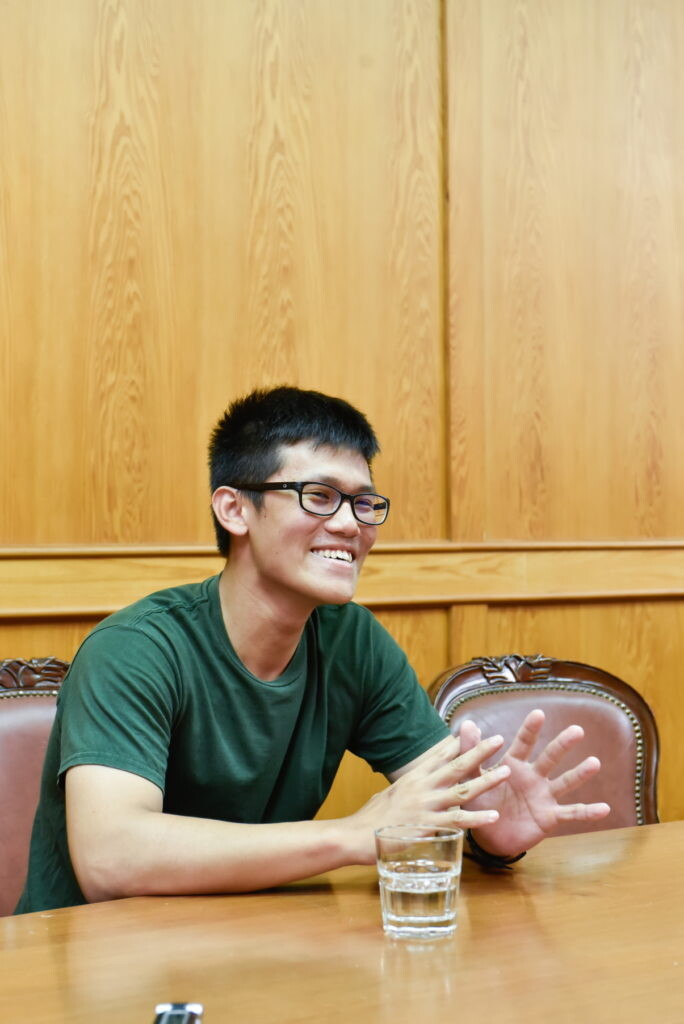
Po-An Yue, a graduate student of the Department of Veterinary Medicine, NPUST


